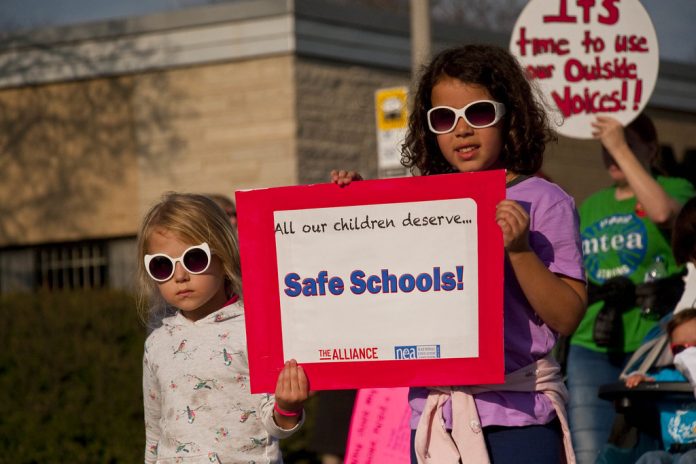By Christian Wade
Republican lawmakers in New Hampshire are making another push to expand private school options for students by redirecting state education aid, but the move faces pushback from Democrats and teachers’ unions who say it will hurt traditional public schools.
House Bill 20 would, if approved, create an “education savings account” that authorizes the same per-pupil share of state school funding for students who want to leave public schools attend private, parochial and charter schools or receive home schooling.
The proposal is named after the late-House Speaker Richard “Dick” Hinch, who died from COVID-19 a week after he was sworn into office. Hinch was a staunch supporter of the proposal.
The state has a tax credit program, created in 2012, that provides scholarships for public school students who want to attend private schools or get home-schooled.
But advocates say the program doesn’t go far enough to meet the demand, and only covers a portion of the expenses. The average grant in the 2019-20 school year was about $2,800.
“The learning needs and family circumstances of every child are unique, so we need to be giving families the freedom to pursue an educational path that is best for their children,” said Andrew Demers of Respect New Hampshire, an advocacy group. “Having education freedom gives children the opportunity to flourish and grow to their fullest potential.”
Under the proposal, the public school dollars would essentially follow K-12 students if they decided to attend private or charter schools. The proposal would authorize annual grants of up to $4,597 per student. The state currently spends about $3,800 per student. Most cities and towns supplement the spending with local property tax revenue.
“This program wouldn’t take any money away from the schools, other than the state money that would follow the child irrespective of where they live,” Demers said.
He said the grants would be “multi-use” and parents would be allowed to use the money for “any education or learning expense” both inside and outside of the classroom.
Republicans have filed similar proposals in the past, all of which have been blocked by Democrats, who were in control of the Legislature for two years until the Nov. 3 elections.
With the GOP controlling a majority of the seats in the House and Senate, Republican leaders are planning to make a major push to approve the bill in the current two-year session.
House Speaker Sherman Packard, R-Londonderry, says the proposal is at the “top of the agenda” for the Republican-controlled House this year.
“We have no doubt in our mind this will help students in this state get a better education,” Packard said during a recent news briefing.
Republican Gov. Chris Sununu, who also supports education freedom accounts, has been publicly advocating for approval of the measure.
“You can sum all this up with: It’s gotta be about outcomes for the kids, not outcomes for the system,” Sununu said during a livestreamed forum last month, sponsored by the Josiah Bartlett Center for Public Policy. “We have to stop worrying about the system as much as the kids.”
The proposal is strongly opposed by teachers unions and Democratic lawmakers who say it would siphon limited money and resources from traditional public schools.
“There’s virtually no transparency or accountability of how the money would be spent or used,” said state Rep. Doug Ley, D-Jaffrey. “It would also include sectarian schools, and I would strongly oppose that.”
Ley, who also serves as president of the New Hampshire chapter of the American Federation of Teachers, said it will force local governments to raise property taxes to make up for the loss of state education funding.
“Because it will siphon away money from the public schools, which serve the vast majority of New Hampshire students,” Ley said.
A recent analysis of the proposal by the state Department of Education projects the expansion of vouchers will save the state between $360 million to 393 million over the next decade.
The proposal is one of several in the upcoming legislative session that seek to divert more state money to expand private education opportunities for students.
Earlier this month, the Republican-led Executive Council approved the acceptance of a $46 million federal grant to expand the number of taxpayer-funded charter schools.
Even with GOP majorities in the House and Senate, the measure is anything but a sure bet. In 2018, when Republicans last controlled the Legislature, a similar measure failed to win support from some GOP lawmakers.
Originally published by The Center Square. Republished with permission.








